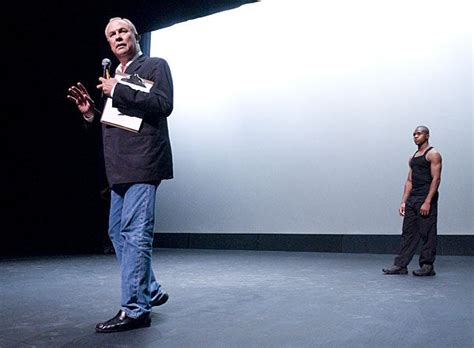A Quote by Lorne Greene
It's a sad commentary when children feel they can talK to a stranger better than their own parents and ask him to solve their personal problems.
Related Quotes
We are more than our problems. Even if our problem is our own behavior, the problem is not who we are-it's what we did. It's okay to have problems. It's okay to talk about problems-at appropriate times, and with safe people. It's okay to solve problems. And we're okay, even when we have, or someone we love has a problem. We don't have to forfeit our personal power or our self-esteem. We have solved exactly the problems we've needed to solve to become who we are.
Let them get at the books themselves, and do not let them be flooded with diluted talk from the lips of their teacher. The less the parents 'talk-in' and expound their rations of knowledge and thought to the children they are educating, the better for the children...Children must be allowed to ruminate, must be left alone with their own thoughts.
[17th-century] Puritans were the first modern parents. Like many of us, they looked on their treatment of children as a test of their own self-control. Their goal was not to simply to ensure the child's duty to the family, but to help him or her make personal, individual commitments. They were the first authors to state that children must obey God rather than parents, in case of a clear conflict.
People who, as children, were intellectually far beyond their parents and therefore admired by them, but who also therefore had to solve their own problems alone. These people, who give us a feeling of their intellectual strength and will power, also seem to demand that we, too, ought to fight off any feeling of weakness with intellectual means. In their presence one feels one cannot be recognized as a person with problems just as they and their problems were unrecognized by their parents, for whom he always had to be strong.
If I ever treated being gay as a problem, then I'm going to continuously find problems, I'm never going to find solutions. Students consistently ask about my personal life, and I kindly let them know, "That's my personal life, you don't need to know that." I've never had a negative interaction with students or parents. I try to become a part of the community so that parents can feel as comfortable with their child moving along in the curriculum more so than me being a problem.
I like reading books about kids where there weren't really many adults, where they didn't need an adult to come and solve the problems for them. They could use their own ingenuity, use their own talents to solve whatever the issue was. And I like that still. I think that children want to read about heroic children. They don't want to read about children that have to be saved all the time.
If you ask the government to solve all of your problems, it's a bit like asking your wife to cook and clean, to raise the children, to hold down a second job to help with the family finances, to keep her parents happy and well and keep your parents happy and well, and to also - to do the lawn and clean the gutters.
What I have most learned from my son is to respect him and to love him unconditionally. I believe that if parents respect their children and educate them with love and justice (and not just with words, but with their own behavior) the relationship with their children will be wonderful. Then parents will always be proud of their children, and children will always be proud of their parents. There will be peace in the family, and the home will be a sanctuary.




































